
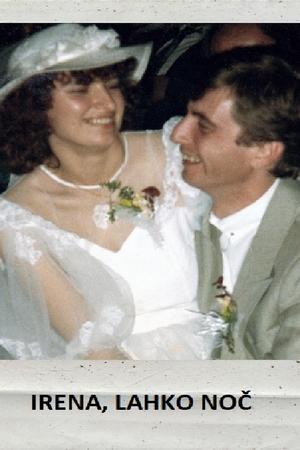
Goodnight, Irene(2017)
An extraordinary love story of Irena and Avguštin Maučec from Turnišče, a village in the region of Prekmurje, Slovenia. In the 1990s, soon after their wedding Irena and Avguštin had a bad car accident that left Irena with a serious brain injury. Failing to wake up, she was given up on by the doctors to die a slow death. Avguštin would not agree: he took her home and has since been giving her selfless care. After years of battling the healthcare system, he decided at the age of 40 to study law. He is now about to take his bar exams, and find a job to be able to take proper care of Irena.

Movie: Goodnight, Irene
Top 2 Billed Cast
Herself
Himself

Irena, lahko noč
HomePage
Overview
An extraordinary love story of Irena and Avguštin Maučec from Turnišče, a village in the region of Prekmurje, Slovenia. In the 1990s, soon after their wedding Irena and Avguštin had a bad car accident that left Irena with a serious brain injury. Failing to wake up, she was given up on by the doctors to die a slow death. Avguštin would not agree: he took her home and has since been giving her selfless care. After years of battling the healthcare system, he decided at the age of 40 to study law. He is now about to take his bar exams, and find a job to be able to take proper care of Irena.
Release Date
2017-01-01
Average
0
Rating:
0.0 startsTagline
Genres
Languages:
SlovenščinaKeywords
Similar Movies
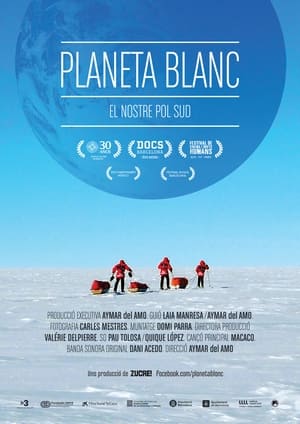 7.0
7.0White Planet, our South Pole(ca)
Planeta Blanc is a documentary about the first-ever disabled expedition to conquer the South Pole ,Following the last steps of Ernest Shackleton. A history about the capacity of the handicapped.
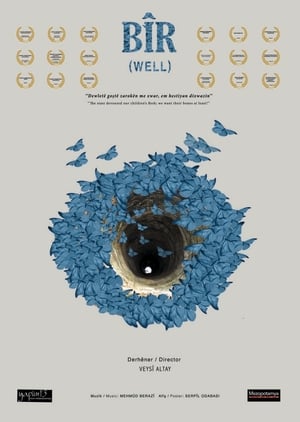 7.0
7.0Well(ku)
In the 1990s many people in Kurdistan were taken into custody and interrogated under torture; their killers disposed of the bodies by throwing them out of helicopters, or burying them in acid-filled wells. Thousands were murdered/disappeared by paramilitary forces—such as Jitem and Hizbul-Kontra—that were financed and supported by the state, though they have always stuck to the line: “We didn’t do it.” The documentary looks at the case of seven people, including four children, who were disappeared from the town of Kerboran [Dargeçit] in 1995, and tells the story of their families’ tireless search for their bones
Crimes of Honour(en)
Throughout the Islamic world, each year hundreds of women are shot, stabbed, strangled or burned to death by male relatives because they are thought to have “dishonoured” their families. They may have lost their virginity, refused an arranged marriage or left an abusive husband. Even if a woman is raped or merely the victim of gossip, she must pay the price. Crimes of Honour documents the terrible reality of femicide – the belief that a girl’s body is the property of the family, and any suggestion of sexual impropriety must be cleansed with her blood. We meet women in hiding from their families, a brother who describes his reasons for killing the sister he loved, and a handful of women who have committed themselves to the protection of young women in danger of losing their lives.
Death by Pollution(en)
Ella Adoo-Kissi-Debrah was a nine-year-old girl who lived in south-east London and died in 2013. The cause of death was listed as air pollution, now her mother is fighting to make clean air a human right.
Resistance(it)
In the panorama of Kurdish music, Koma Berxwedan (Group Resistance) is one of the most interesting, innovative, experimental groups. To a deep love for music research the group has always associated a strong political commitment. Some of its members have joined the PKK guerrillas in the mountains of Kurdistan. Three of them died in combat. Some have been forced to live in exile and others continued to challenge the Turkish authorities by carrying out their work in Kurdistan.
Net of Rights(en)
Explores the relation between Internet protocols and the promotion and protection of Human Rights.
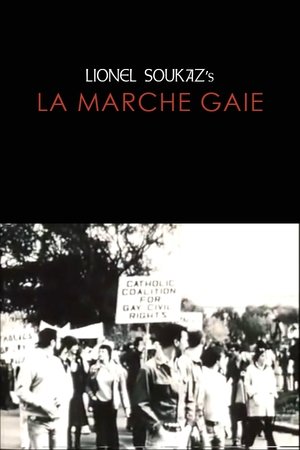 4.3
4.3La marche gaie(fr)
A short documentary about the October 14 1979 March For Lesbian And Gay Rights in Washington D.C.
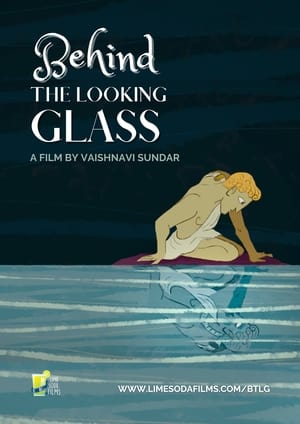 0.0
0.0Behind the Looking Glass(en)
Behind The Looking Glass is a film about the lives of women whose partners have or want to ‘transition’. While we hear a great deal of “stunning and brave” stories of men, there is a deadly silence when it comes to the stories of the wives or partners. This film will be the first of its kind in collecting such experiences of women from around the world.
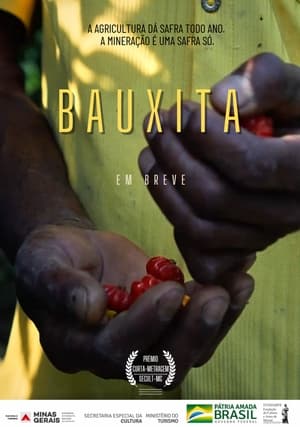 10.0
10.0Bauxita(en)
Brazil is one of the most dangerous countries for environmentalists. The rural community of Belisário holds the country's second largest bauxite reserve, right below one of the most bio-diverse areas in the world: the Atlantic Forest. The small community was shaken when the beloved Gilberto, a Franciscan Friar, received a death threat followed by the lines: "you've been talking against mining way too much". PT: O Brasil é um dos países mais perigosos do mundo para defensores do meio ambiente. Em Minas Gerais, a comunidade rural de Belisário abriga a segunda maior reserva de bauxita do país, em uma das áreas de maior biodiversidade do mundo: a Mata Atlântica. A tranquilidade do pequeno vilarejo foi abalada quando Frei Gilberto, um franciscano que dedica sua vida à preservação da natureza, recebeu uma ameaça de morte com o seguinte aviso: "você tem falado demais contra a mineração".
 0.0
0.0The mother of the disabled(fr)
Petrouchka is a young Gabonese woman who takes care of her brother who is a victim of a disability. Her love for her brother leads her to create an association that aims to help all young people who live in this situation and is now called the mother of the disabled. She proudly shares her career with her followers on social networks.
 0.0
0.0The Grass Dwellers(es)
Juan Méndez Bernal leaves his house on the 9th of april of 1936 to fight in the imminent Spanish Civil War. 83 years later, his body is still one of the Grass Dwellers. The only thing that he leaves from those years on the front is a collection of 28 letters in his own writing.
 7.4
7.4Re-Births(fr)
A documentary film depicting five intimate portraits of migrants who fled their country of origin to seek refuge in France and find a space of freedom where they can fully experience their sexuality and their sexual identity: Giovanna, woman transgender of Colombian origin, Roman, Russian transgender man, Cate, Ugandan lesbian mother, Yi Chen, young Chinese gay man…
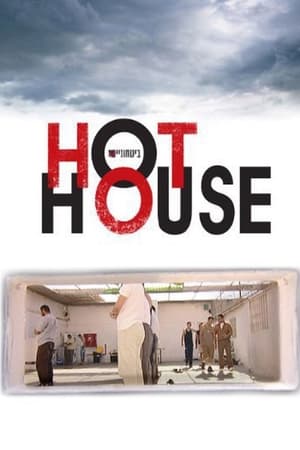 0.0
0.0Hot House(he)
In a candid and unflinching portrait of Palestinian prisoners, Shimon Dotan takes viewers inside the highest security prisons in Israel where thousands of Palestinians fill these detention facilities.
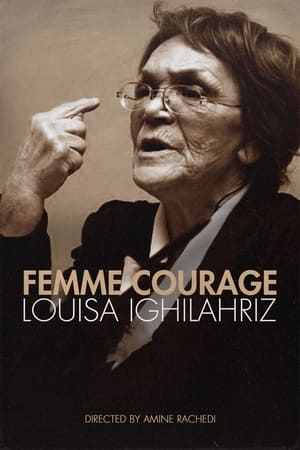 10.0
10.0Woman of Courage - Louisa Ighilahriz(ar)
The autobiographical account of the tormented life of a witness of the century: Louisa Ighilahriz, activist and leading figure in Algerian independence. A student, she joined the independence struggle at the age of 20, joining the ranks of the FLN on the eve of the Battle of Algiers in late 1956 under the name Lila. She took part in the high school students' strike, then fled into the maquis when she was actively sought after. She was part of the French FLN support network of "suitcase carriers" during the Battle of Algiers. Seriously wounded alongside her network leader, Saïd Bakel, during an ambush in 1957, hospitalized and then imprisoned, she suffered numerous tortures in French prisons. She will be saved from certain death by an anonymous person, she will seek, for forty years, to find him just to show him her gratitude... Emblematic of the painful Franco-Algerian history, Louisa's story is poignant and imbued with humanism.
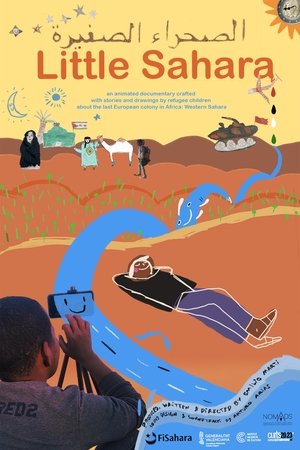 0.0
0.0Little Sahara(es)
Those who do not know the Sahara think there is only sand in the desert. But in the desert there are children who play and draw and make movies, and who would like to not have to think about the war. In the desert there's a European colony, an occupied country called Western Sahara, where there are thousands of Sahrawi refugees living a hard life in exile. "Little Sahara" tells their story, the story of a supportive, resilient people who try to thrive and grow in the Hamada, where everything has a hard time growing.
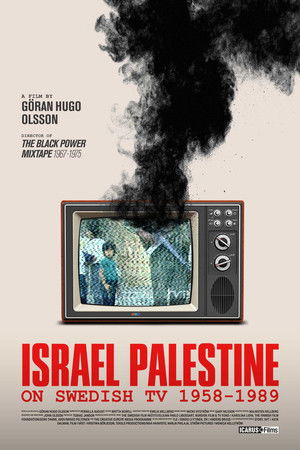 9.0
9.0Israel Palestine on Swedish TV 1958-1989(sv)
In the years 1958 – 1989, public service monopolies prevailed in Sweden and SVT's reporting from Israel and Palestine was unique. Their reporters were constantly on site in the war-torn area, documenting everything from everyday stories to major international crises. This extensive material is the basis for archivist Göran Hugo Olsson's (Black Power Mixtape 1967-1975, about violence/Concerning Violence) latest film in which images of the rise of the Israeli state are interspersed with Palestine's freedom struggle.
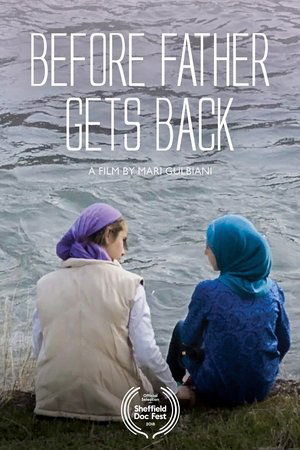 0.0
0.0Before Father Gets Back(ka)
In a darkened classroom, the white cracked walls serve as a movie screen. We are in a remote mountain village in Georgia. The light from the projector breaks the darkness: the children's first cinematic experience is about to begin. Among the kids are Iman and Eva, two Muslim girls, for whom the experience becomes a turning point and inspires them to pick up a camera and start filming their daily lives. The girls are growing up in a valley infested by radicalism, where most people live in constant fear that their relatives will sacrifice their lives in the name of God.
X-Mission(en)
X-Mission explores the logic of the refugee camp as one of the oldest extra-territorial zones. Taking the Palestinian refugee camp as a case in point, the video engages with the different discourses — legal, symbolic, urban, historical — that give meaning to this exceptional space.
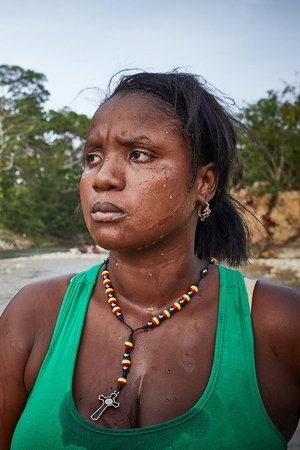 0.0
0.0Massacre River(en)
Pikilina is a Dominican-born woman of Haitian descent. Racial and political violence erupts when the country of her birth, the Dominican Republic, reverses birthright citizenship and she and 200,000 others are left stateless.